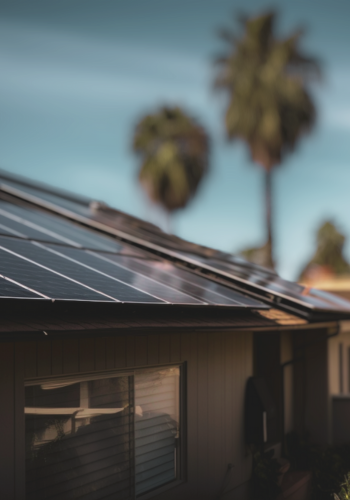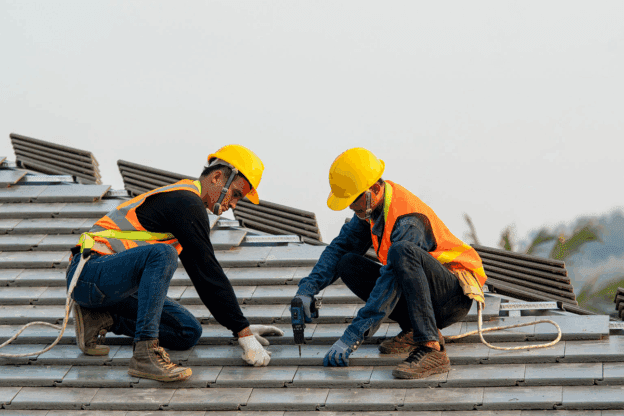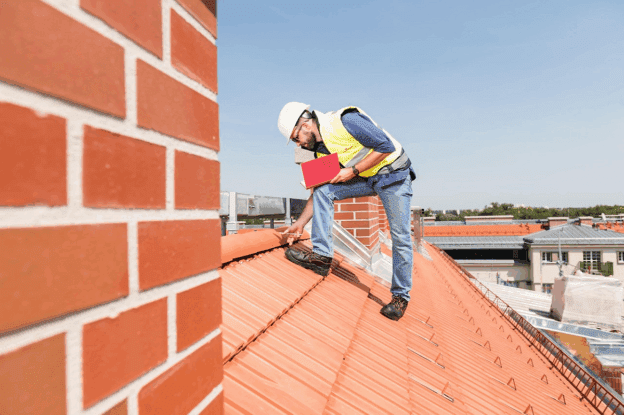
Transforming Your Home: Solar Panel Installation for Modern Roofs
The push towards sustainability has never been stronger, and solar panel installation is leading the charge. As homeowners seek innovative ways to reduce their carbon footprint and cut down on energy costs, modern roofs are becoming the ideal canvas for these green solutions.
Modern roofs, with their diverse shapes and materials, provide unique opportunities for effective solar panel placement. This not only enhances the roof’s efficiency but also complements its aesthetic appeal. Exploring solar panel installation can transform any home into a beacon of sustainability, reflecting a commitment to both environmental stewardship and cost savings.
Benefits of Solar Panel Installation for Modern Roofs
Benefits of Solar Panel Installation for Modern Roofs offer numerous advantages that enhance both the functionality and value of your home. Installing solar panels on modern roofs brings:
- Reduced Energy Bills: Solar panels generate free electricity from sunlight, significantly lowering monthly utility costs and providing long-term financial savings.
- Environmental Impact: By harnessing renewable energy, solar panels reduce reliance on fossil fuels, decreasing greenhouse gas emissions and contributing to a cleaner environment.
- Increased Property Value: Homes with solar panels often see a boost in market value, making them more attractive to potential buyers interested in energy efficiency and sustainability.
- Energy Independence: Solar panels reduce dependence on the grid, providing a reliable power source during outages and lowering vulnerability to energy price fluctuations.
- Incentives and Rebates: Many regions offer financial incentives and rebates for installing solar panels, reducing the initial investment and accelerating the return on investment.
Incorporating solar panels into modern roofs delivers substantial benefits, from financial savings to environmental impact.
Choosing the Right Solar Panels for Your Home
Selecting the right solar panels involves understanding your home’s specific needs and characteristics. Different types of solar panels, such as monocrystalline, polycrystalline, and thin-film, offer varying levels of efficiency and aesthetics. Monocrystalline panels are known for their high efficiency and sleek design, making them suitable for roofs with limited space.
Polycrystalline panels are more cost-effective but slightly less efficient. Thin-film panels, while less common, are flexible and lightweight, ideal for unconventional roof surfaces. It’s also crucial to consider factors like warranty, brand reputation, and energy production capacity. A professional assessment can help match the best solar panel type to your home’s energy requirements and roof design, ensuring optimal performance and long-term satisfaction.
How Solar Panels Integrate with Roof Designs
Integrating solar panels with modern roof designs requires careful planning to ensure both aesthetic harmony and functional efficiency. Modern roofs come in various styles, such as flat, pitched, or curved, each influencing how solar panels are installed. For flat roofs, panels can be mounted on racks that tilt them towards the sun, optimizing energy capture. Pitched roofs allow for more straightforward installations, where panels can be affixed directly to the roof surface.
Curved roofs, however, may require custom mounting solutions to fit the panel’s alignment with the sun’s trajectory. Working with experienced installers who understand these nuances helps in achieving a seamless integration that maximizes both the roof’s performance and visual appeal, ensuring that the solar panels complement rather than detract from the overall design.
Maximizing Energy Efficiency with Solar Panels
Maximizing energy efficiency with solar panels involves more than just installing them; it requires optimizing their placement and maintenance. Positioning panels to receive the most sunlight throughout the day is crucial. This means placing them on the most sun-exposed areas of the roof, typically facing south in the Southern Hemisphere.
Regular maintenance is equally important to ensure that the panels remain free from debris and dirt, which can block sunlight and reduce efficiency. Additionally, incorporating energy storage solutions, such as batteries, can help in storing excess energy produced during sunny periods for use during cloudy days or nighttime.
Installation Process for Solar Panels
The installation process for solar panels involves several key steps, ensuring a smooth and effective setup. Here’s a brief overview of what to expect:
- Initial Assessment: A professional will evaluate your roof’s structure and orientation to determine the best placement for the panels. This step includes checking for shading and ensuring structural integrity.
- Design and Planning: Based on the assessment, a detailed design plan is created. This plan outlines the type and number of panels, their placement, and how they will connect to your home’s electrical system.
- Installation of Mounting Hardware: Mounting hardware is installed on the roof to securely hold the solar panels in place. Proper installation is crucial for durability and optimal panel performance.
- Panel Installation: Solar panels are mounted onto the previously installed hardware. Wiring is connected, linking the panels to the inverter, which converts sunlight into usable electricity.
- System Testing and Inspection: After installation, the system is thoroughly tested to ensure everything functions correctly. An inspection is performed to confirm compliance with local regulations and safety standards.
Understanding the installation process helps in setting realistic expectations and ensures a smooth transition to solar energy.
Cost Considerations for Solar Panel Installation
Cost is a significant factor when considering solar panel installation, but it’s essential to view it in the context of long-term savings. The initial investment covers the cost of panels, inverter, mounting hardware, and installation labor. While this can be substantial, various incentives, rebates, and financing options can reduce the upfront expense.
The potential savings on energy bills over time can offset the initial cost. It’s also important to consider the longevity and efficiency of the solar panels, as higher-quality panels may come with a higher price tag but offer better performance and longer warranties. Evaluating the overall cost versus long-term benefits helps in making an informed decision about solar panel installation.
Maintaining Solar Panels on Modern Roofs
Maintaining solar panels on modern roofs is crucial for ensuring their optimal performance and longevity. Regular cleaning is necessary to remove dirt, leaves, and other debris that can obstruct sunlight and reduce efficiency. In addition to cleaning, periodic inspections are important to check for any damage or wear, such as loose mounts or cracked panels.
Ensuring that the panels are free from shading and that the inverter is functioning correctly also contributes to maintaining performance. Many professional solar installation companies offer maintenance services, which can provide peace of mind and ensure that the system remains in top condition.
Enhancing Property Value with Solar Panels
Installing solar panels can significantly enhance property value, making it a wise investment for homeowners. Prospective buyers often see solar installations as a valuable addition due to the promise of reduced energy bills and environmental benefits. Homes with solar panels are perceived as more energy-efficient and modern, which can make them more attractive in a competitive real estate market.
Additionally, the potential for future energy savings and the growing popularity of green technologies contribute to increased property values. When selling a home, having a solar panel system already in place can differentiate it from other properties and potentially lead to a higher resale price.
Solar Panel Installation: What to Expect
When embarking on a solar panel installation, it’s important to understand what to expect throughout the process. Initially, a thorough assessment by a professional installer will evaluate your home’s suitability for solar panels. Following this, you’ll receive a detailed proposal outlining the system design, costs, and expected energy production. The installation phase involves mounting the panels, wiring them, and connecting them to the inverter and electrical system. After installation, the system will undergo a final inspection to ensure everything is in working order. Expect ongoing support and monitoring to address any issues that may arise.
Future Trends in Solar Panel Technology
The future of solar panel technology is rapidly evolving, with advancements poised to enhance performance and integration. Emerging trends promise to redefine how solar energy is harnessed and utilized.
- Higher-Efficiency Photovoltaic Cells: New materials and designs are pushing the boundaries of efficiency, allowing solar panels to convert more sunlight into energy. These improvements mean greater energy production in smaller spaces.
- Perovskite Solar Cells: This innovative material offers potential for higher efficiency and lower production costs compared to traditional silicon cells. Perovskite cells are lightweight and flexible, expanding their application possibilities.
- Transparent Solar Panels: Transparent panels are being developed to be integrated into windows and facades, generating power without obstructing light or views.
- Flexible and Lightweight Panels: Advances in materials science are leading to flexible solar panels that can be installed on curved or irregular surfaces. This flexibility enhances the potential for solar energy in diverse architectural designs.
- Smart Solar Technology: Incorporating smart technology into solar panels, such as integrated monitoring systems and adaptive controls, allows for real-time performance tracking and optimized energy use, improving overall system efficiency.
The future of solar panel technology promises exciting innovations that will drive greater efficiency and versatility, shaping the next generation of renewable energy solutions.
Embracing solar panel installation is a transformative step for modern homes, offering both environmental and financial benefits. From enhancing energy efficiency to boosting property value, the integration of solar panels with contemporary roof designs reflects a commitment to sustainability and smart living. With advancements in technology and a range of installation options, transitioning to solar energy has never been more accessible or beneficial.
For those ready to explore how solar panel installation can elevate their home, Tidal Remodeling provides expert guidance and seamless integration. Contact Tidal Remodeling at +1 (760) 990-7890 to start your journey toward a more energy-efficient and eco-friendly home today.



